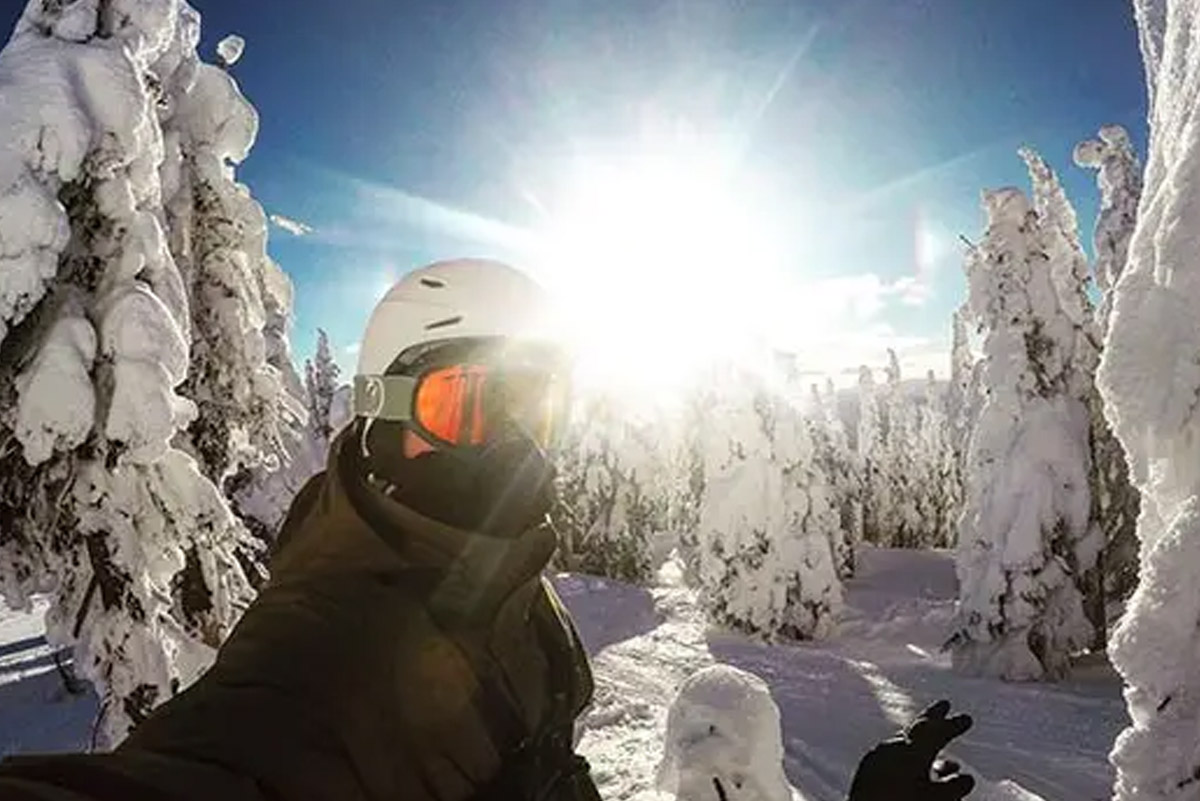Winter can bring a beautiful snow-covered landscape, perfect for skiing, snowboarding, and outdoor adventures. However, the bright winter sun combined with snow can create risks for your eyes that many people don’t expect. Sunburned eyes, also known as snow blindness, can happen when the eyes are overexposed to UV rays bouncing off the snow. Understanding the risks and how to protect your eyes will keep you safe while enjoying the great outdoors.
What Is Snow Blindness?
Snow blindness (photokeratitis) occurs when the eyes are overexposed to UV radiation. The snow acts as a mirror, reflecting sunlight, which increases the intensity of UV exposure. This condition causes eye pain and extreme sensitivity to light, among other symptoms. Fortunately, snow blindness usually does not lead to permanent vision loss, but the discomfort can last for up to two weeks.
The symptoms of sunburned eyes from snow blindness are similar to a skin sunburn but affect the eyes:
- Burning or stinging sensation in the eyes
- Blurred vision
- Watery eyes and swollen eyelids
- Sensitivity to light
- In rare cases, temporary vision loss can occur.
The good news is that most of these symptoms will resolve within a couple of days. However, sun blindness is painful and can temporarily impair your ability to see, so it’s crucial to know how to treat and prevent it.
How Do I Protect My Eyes From Sunburn in the Snow?
1. Wear Sunglasses with UV Protection: No matter the season, sunglasses should be a part of your daily routine. Make sure your sunglasses block at least 95% of UV rays to protect your eyes. In the winter, snow reflects sunlight, increasing the intensity of UV exposure, which is why sunglasses are essential even on cloudy days.
2. Opt for UV Protective Eyewear for Sports: For winter sports, wearing well-fitting sports eyewear like ski goggles offers even more protection. Goggles with a wrap-around design will ensure that sunlight doesn’t reach your eyes from the sides and that they stay securely in place while you’re active.
3. Stay Safe in the Sun: If you’re engaging in outdoor activities like skiing or snowboarding at high altitudes, the sun’s UV rays are even stronger. It’s vital to protect your eyes with sunglasses or goggles specifically designed for these conditions.
What to Do If You Experience Sunburned Eyes (Snow Blindness)?
If you develop sunburned eyes, it’s important to treat them properly to speed up recovery:
1. Rest Your Eyes: Stay out of the sun for a few days to give your eyes time to heal. If you’re indoors, wearing sunglasses can help reduce light sensitivity.
2. Apply a Cool, Damp Cloth: For extra relief, place a cool, damp cloth over your closed eyelids while resting.
3. Avoid Contact Lenses: Do not wear contact lenses until your eyes return to normal. This helps prevent further irritation.
4. Use Artificial Tears: Artificial tears can soothe your eyes and promote healing. However, it’s important to consult an eye doctor before using any eye drops, as some may not be suitable for sunburned eyes.
Schedule an Appointment at Eyes On Group
If you’re experiencing discomfort from sunburned eyes or need expert care for eye pain from UV exposure, don’t hesitate to contact Eyes On Group. Our team is here to help you manage and treat any eye issues after COVID or eye pain from various causes, including snow blindness. We offer eye care services and consultations to ensure your eyes stay healthy and protected year-round.
